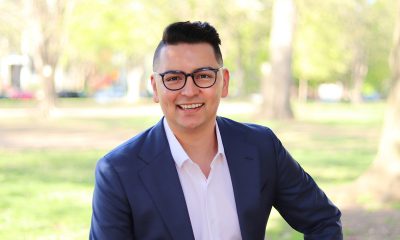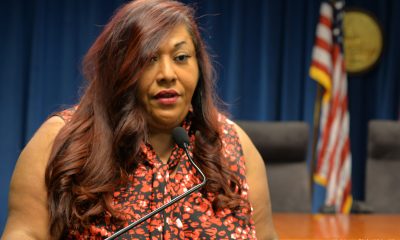District of Columbia
Judge dismisses lawsuit against Casa Ruby board members
Blade catches up with Ruby Corado in El Salvador
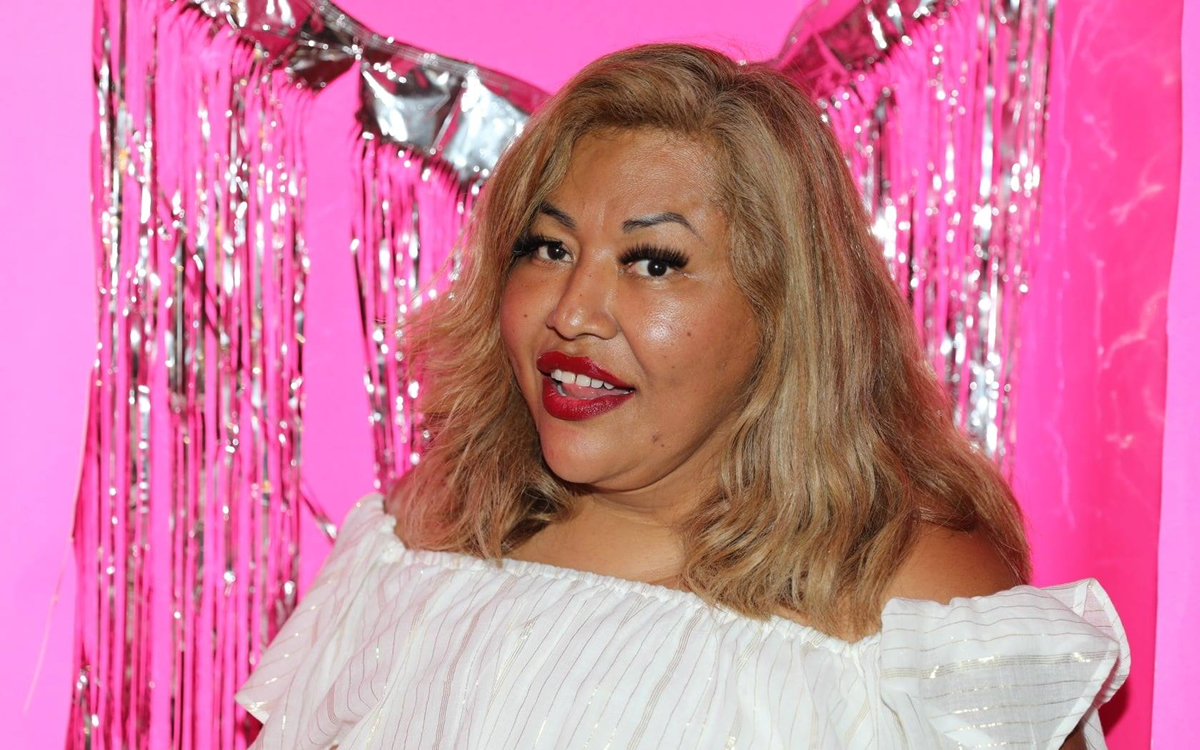
The latest hearing in the civil case against Ruby Corado and Casa Ruby took place in D.C. Superior Court on July 21.
Corado did not attend the hearing in person, but called in from El Salvador where she currently lives.
The latest hearing focused on the three limited liability companies that Corado created and controlled: Casa Ruby LLC that did business as Moxie Health, Pneuma Behavioral Health LLC and Tigloballogistics LLC that operated as Casa Ruby Pharmacy.
The Office of the D.C. Attorney General has sued the three entities. Corado on July 21 wanted to testify on their behalf, but D.C. Superior Court Judge Danya A. Dayson told her she could not because legal rules prevent her from doing so. Corado has also not provided a lawyer to represent the companies.
Dayson on July 21 approved a motion filed by the Office of the D.C. Attorney General calling for her to issue a default judgement against the three LLC companies that requires them to pay a sum of money they allegedly improperly received from the original Casa Ruby at Corado’s direction and allegedly sent to Corado’s personal bank account.
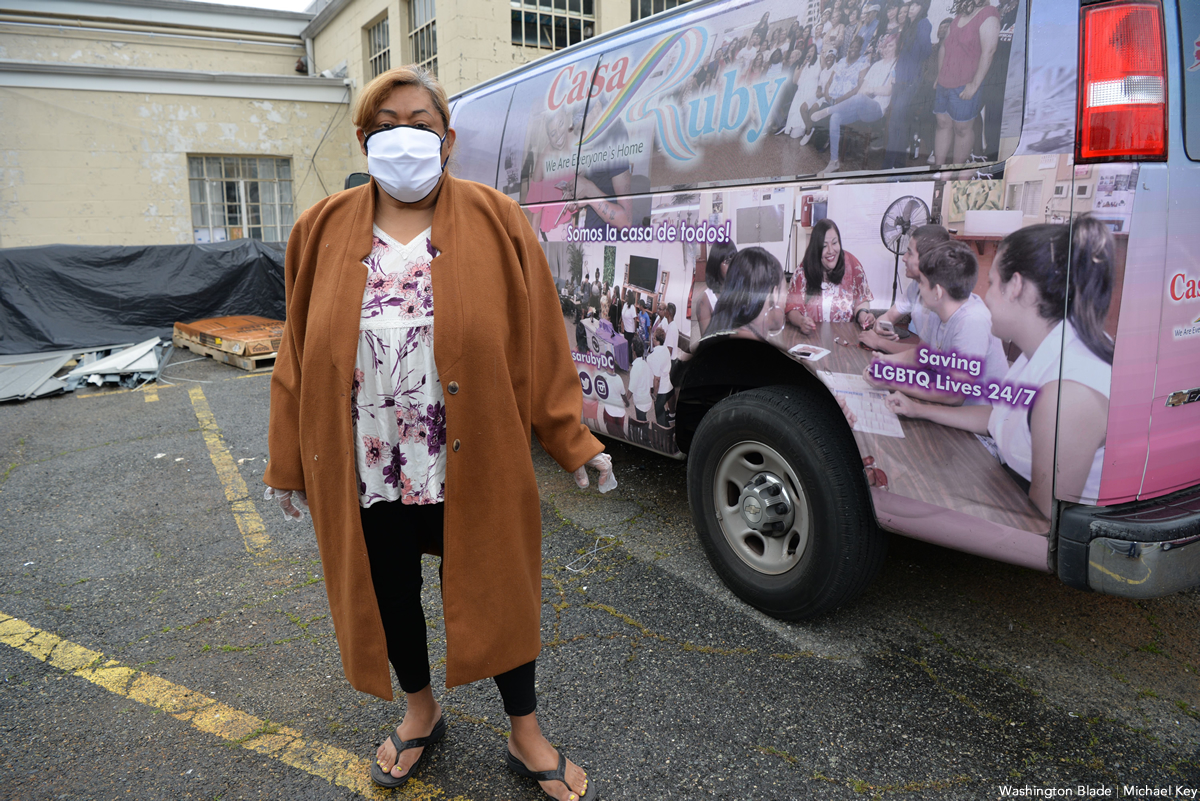
Corado in December 2022 told the Washington Blade during an interview in San Salvador, the Salvadoran capital, the case against her and Casa Ruby amounts to “persecution.” Corado once again spoke with the Blade on July 28 in El Salvador.
Corado said the allegations against her are the “result of many movements that have been made against her activism.”
“Many haters began to criticize me because a trans Latina woman had so much privilege in Washington, D.C.,” said Corado.
Corado left El Salvador in the 1980s during the country’s civil war.
She said the only thing she did once she arrived in the U.S. was to work on behalf of those who needed help. Corado told the Blade she wanted to work for the ideals of the LGBTQ rights movement, and not for herself.
Corado said she began to see what she described as the D.C. government sabotaging social change six years ago, and she reinterated her previous claims that political persecution stemmed from it.
“I did things that had to be done,” said Corado.
Corado referenced the three allegations against her — Casa Ruby did not have a board, the board never held meetings over 10 years and she gave herself a salary without the board’s authorization — and reiterated her belief that she is the victim. Corado told the Blade the D.C. government’s decision to no longer fund Casa Ruby did not impact her, but the LGBTQ people who benefitted from what she described as this “historic project.”
The Office of the D.C. Attorney General has also accused Corado of withdrawing more than $400,000 of Casa Ruby funds to work in El Salvador. Corado maintains it was a personal loan that she made to the board and it was approved.
“This was to look for self-sustainable projects and at the same time to provide sustainability to Casa Ruby in Washington, D.C.,” Corado told the Blade.
She also said she has the necessary evidence that proves she owes the bank money because it transferred the funds to her as a personal credit. Corado told the Blade this evidence has not been presented in the case because it has yet to be discussed.
Corado said she justified the efforts to make Casa Ruby self-sufficient because she had seen other organizations in the U.S. do car washes, enter into partnerships with large businesses that sold products, open pharmacies and launch other projects that helped them become financially independent.
“The idea was born back in the year 2018 when I visited El Salvador with the mayor of D.C., Muriel Bowser, to talk about projects to mitigate migration,” she said.
Corado said she decided to support projects that would benefit LGBTQ Salvadorans in order to stop migration from the country. She also told the Blade she wanted to implement initiatives that would have employed LGBTQ people and provided support to older adults in the community.
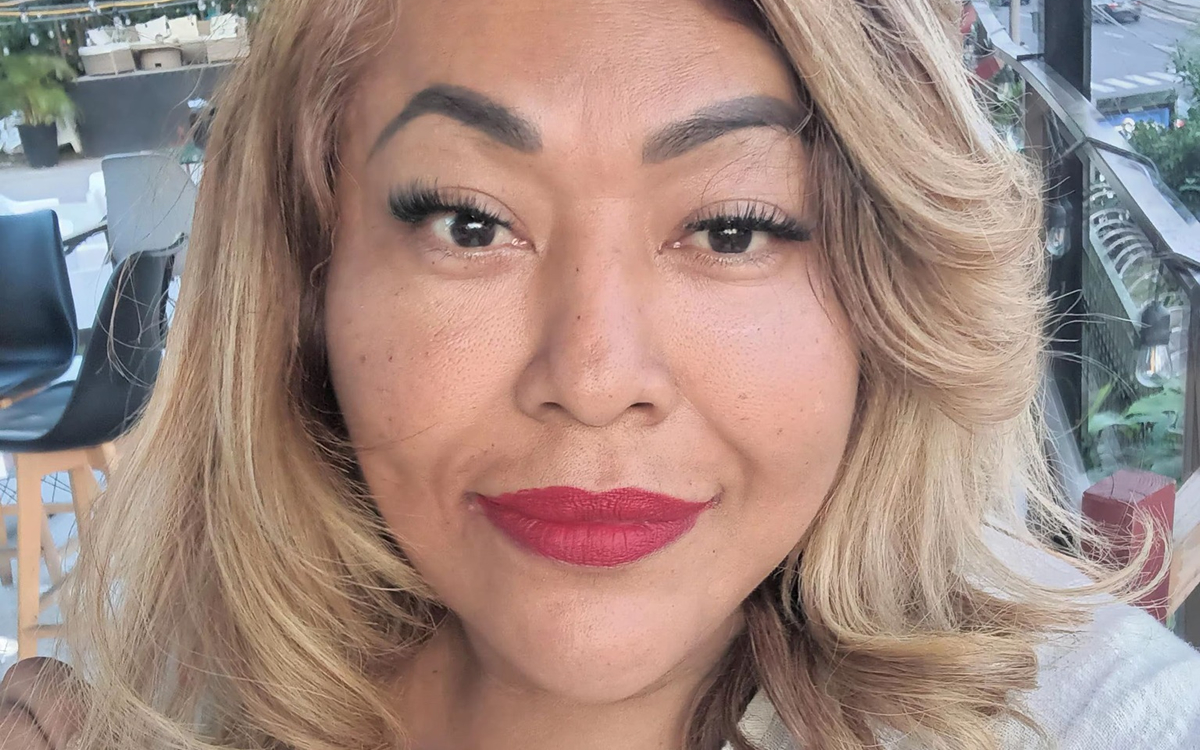
Consuella López, who was the board’s president, and Meredith Zoltick, who was the board’s secretary, both testified during the July 21 hearing.
Corado told the Blade that López and Zoltick both testified there was a board during the time it was alleged that one didn’t exist.
“They mentioned there had been board meetings, but they didn’t always take notes,” said Corado. “They also said that they had indeed approved my salary.”
Corado told the Blade that López and Zoltick in their testimony denied all of the allegations against her. Corado added statements that Holly Goldmann, who was a Casa Ruby staffer, has also supported her.
The Blade couldn’t immediately reach Zoltick and Lopez to confirm Corado’s assertion that they gave statements to the court disputing the allegations against Corrado. Goldmann also couldn’t immediately be reached for comment.
The Wanda Alston Foundation, which Dayson has named as Casa Ruby receiver, has sued the former board members on grounds that they failed to adequately oversee the Casa Ruby operations and Corado’s role as executive director.
Dayson on May 1 dismissed the complaint against all but one of the former board members, Consuella Lopez. The judge states in her ruling that Lopez was an exception because the complaint presents evidence that Corado issued Lopez a Casa Ruby credit card to use for her personal expenses and doing that provided legal grounds for the complaint against her to continue. The Wanda Alston Foundation has appealed the decision to dismiss the complaint against the other board members.
The civil case against Corado and Casa Ruby will continue.
It remains unclear whether Corado has retained a lawyer, but she said the attorney who continues to advise her has said he must follow the legal process. Corado, for her part, told the Blade she will remain in El Salvador to continue with what she describes as the process of “self care” for her physical and mental health.
Lou Chibbaro, Jr. and Michael K. Lavers contributed to this story.
District of Columbia
Activists protest outside Hungarian Embassy in DC
Budapest Pride scheduled to take place Saturday, despite ban

More than two dozen activists gathered in front of the Hungarian Embassy in D.C. on Friday to protest the country’s ban on Budapest Pride and other LGBTQ-specific events.
Amnesty International USA Executive Director Paul O’Brien read a letter that Dávid Vig, executive director of Amnesty International Hungary, wrote.
“For 30 years Budapest Pride has been a celebration of hope, courage, and love,” said Vig in the letter that O’Brien read. “Each march through the streets of Budapest has been a powerful testament to the resilience of those who dare to demand equality, but a new law threatens to erase Pride and silence everyone who demands equal rights for LGBTI people.”
“The Hungarian government’s relentless campaign against LGBTI rights represents a worrying trend that can spread normalizing division and hatred,” added Vig. “Thank you for standing with us when we refuse to be intimidated.”
Council for Global Equality Chair Mark Bromley and two of his colleagues — Stephen Leonelli and Keifer Buckingham — also spoke. Health GAP Executive Director Asia Russell and Chloe Schwenke, a political appointee in the Obama-Biden administration who worked for the U.S. Agency for International Development, and Planned Parenthood staffers are among those who attended the protest.
(Washington Blade video by Michael K. Lavers)
Hungarian lawmakers in March passed a bill that bans Pride events and allow authorities to use facial recognition technology to identify those who participate in them. MPs in April amended the Hungarian constitution to ban public LGBTQ events.
Budapest Pride is scheduled to take place on Saturday, despite the ban. Hundreds of European lawmakers are expected to participate.
“Sending strength to the patriotic Hungarians marching tomorrow to advance human dignity and fundamental rights in a country they love,” said David Pressman, the gay former U.S. Ambassador to Hungary, on Friday on social media.
Sending strength to the patriotic Hungarians marching tomorrow to advance human dignity and fundamental rights in a country they love. Szabadság és szerelem. My past remarks on Budapest Pride: https://t.co/y1QhA9QouA
— David Pressman (@AmbPressman) June 27, 2025
District of Columbia
Man sentenced to 15 years in prison for drug deal that killed two DC gay men
Prosecutors asked for 210 month sentence

On Thursday Jevaughn Mark, 33, of D.C., was sentenced to 180 months in federal prison for running what prosecutors called a “prolific drug delivery service” that led to the fentanyl overdose deaths of two men in D.C.’s gay community.
The 15-year sentence comes three months after Mark, aka “Ledo,” pleaded guilty to conspiracy to distribute 40 grams or more of fentanyl and 500 grams or more of cocaine, as well as unlawful possession of a firearm by a felon. As part of the plea deal, Mark accepted responsibility for causing the deaths of Brandon Román and Robert “Robbie” Barletta. U.S. District Court Judge Tanya S. Chutkan also ordered five years of supervised release following his prison term.
Prosecutors from the U.S. Attorney’s Office for the District of Columbia argued that Mark knowingly sold fentanyl and was at least partially responsible for the men’s deaths. The office had asked the court for a 210-month sentence.
On Dec. 27, 2023, Román, 38, and Barletta, 28, were found unconscious in their Northwest Washington home after a 911 call brought police and emergency responders to the scene. A police investigation later revealed that Román had purchased what he believed was ketamine from Mark. DEA testing of the remaining drugs found no ketamine — only fentanyl, xylazine, and caffeine.
Friends and family members wore rainbow ribbons in solidarity with Román, a prominent D.C. attorney and LGBTQ rights advocate, and Barletta, a historic preservation expert and home renovation business owner — both of whom were active members of Washington’s gay community.
“There is no good outcome here,” Chutkan said from the bench before issuing the sentence. “These people didn’t deserve to die.”
While noting Mark’s “long record,” Chutkan opted for a sentence shorter than what the government had requested, citing what she believed to be genuine remorse.
“I believe Mr. Mark when he wishes he could take it back,” she said.
Following the sentencing, the Washington Blade spoke with Jeanine Pirro, the recently appointed U.S. Attorney for D.C., who echoed the judge’s compassion, but stood by her office’s push for a longer sentence.
“We had asked for more time,” Pirro said. “He’s a felon in possession, and there’s the fentanyl. But he’s got a prior record. There are various other crimes. This guy’s been operating with impunity.”
“My job is to make sure we recognize both Brandon and Robbie with dignity,” she added. “They are two very special human beings who should not have died — and they died as a result of not only someone else’s criminal behavior, but someone else’s reckless behavior in ignoring what he should not have ignored.”
DEA Special Agent in Charge Ibrar Mian emphasized the broader dangers of the drug trade in a written statement.
“The drug market is characterized by the illegal availability of polydrug mixtures, many of which have lethal amounts of fentanyl,” Mian said. “Criminals like Mr. Mark pose a deadly threat by selling drugs with fentanyl, which users unknowingly consume, often leading to their deaths. Illegal drug distribution affects the very foundations of our families and communities, so every time we take criminals like Mr. Mark off the streets, lives are saved.”
Mian also credited the DEA teams, USAO-DC litigators, and local and state partners for their work in investigating and removing “illegal drugs from this individual who was involved in violent activities.”
Asked whether she had a message for the LGBTQ community — statistically more vulnerable to substance use disorders than the general population — Pirro was direct about her commitment to equal justice.
“The only thing I can say to the LGBT community is that there is a level playing field here,” Pirro said. “Everybody gets the same justice. You have a problem, you have an issue, you come to me. I have a long history of fighting for equal rights for everyone. Everyone deserves dignity, everyone deserves protection, and everyone deserves justice — and you’re gonna get that from me.”
District of Columbia
GLAA issues ratings in Ward 8 D.C. Council special election
Declines to rate ousted Council member Trayon White who’s seeking re-election

GLAA D.C., formerly known as the Gay & Lesbian Activists Alliance of Washington, announced on June 22 its ratings for three of the four candidates running in the city’s July 15 Ward 8 D.C. Council special election, saying each of the three have records of support for the LGBTQ community.
The election was called earlier this year when the Ward 8 seat became vacant after the Council voted unanimously to expel Ward 8 Council member Trayon White (D) following his arrest by the FBI on a federal bribery charge in August 2024.
White, who has denied any wrongdoing and was released while awaiting his trial scheduled for January 2026, is one of the four candidates running in the special election to regain his seat on the Council. Under D.C. law, he can legally run for office and serve again on the Council if he wins up until the time he is convicted of the criminal offense he is charged with.
While not mentioning White by name, in a statement accompanying its candidate ratings GLAA said it has a policy of not rating any candidates expelled or who resign from an elected position for ethics violations, including “malfeasance.”
The three candidates it rated – Sheila Bunn, Mike Austin, and Salim Adofo – are longtime Ward 8 community advocates who have been involved in local government affairs for many years and, according to LGBTQ activists who know them, have been supportive of LGBTQ rights. All three are running as Democrats.
White also has a record of supporting LGBTQ issues while serving on the Council since 2017.
GLAA rates candidates on a scale of -10, the lowest possible rating, to +10, its highest rating. Since it began candidate ratings in the 1970s it has based the ratings mostly on LGBTQ-related issues.
But in recent years, it has shifted gears to base the ratings mostly on non-LGBTQ specific issues, saying those issues — such as housing, healthcare, and a call for decriminalizing sex work — impact the LGBTQ community as well as all D.C. residents.
The following are the GLAA D.C. ratings for the three Ward 8 candidates it rated:
Sheila Bunn – 7.5
Mike Austin – 6.5
Salim Adofo – 4.5
Bunn is a former staff member for D.C. Congressional Del. Eleanor Holmes Norton (D-D.C.) and has worked for former D.C. Mayor and later D.C. Council member Vincent Gray (D-Ward 7), a longtime strong supporter of the LGBTQ community.
Austin, an attorney, is a former chair of one of the Ward 8 Advisory Neighborhood Commissions, served as chief of staff in the office of the D.C. Deputy Mayor for Economic Development, and worked on the staff of former Ward 7 Council member LaRuby May (D).
Adofo has served as a Ward 8 Advisory Neighborhood Commissioner since 2018 and chair of his ANC since 2021. His campaign biographical information shows he has been an advocate for affordable housing, improved health care and lower health costs in Ward 8. He is the only one of the Ward 8 special election candidates on the July 15 ballot to express support for LGBTQ rights on his campaign website.
“At the heart of our platform is a steadfast commitment to uplifting LGBTQ+ communities, ensuring that policy is shaped not just for them, but with them,” a statement on his website says.
As of early this week, White did not have a campaign website. He has won re-election for the Ward 8 Council seat in every election since 2017, including the November 2024 election following his August 2024 arrest.
The Capital Stonewall Democrats, D.C.’s largest local LGBTQ political group, which for many years has endorsed candidates running for public office in D.C., decided not to make an endorsement in the Ward 8 special election, according to the group’s president, Howard Garrett.
“We thought that this is best because this is a special election and in these unfamiliar times, we decided not to take a stand,” Garrett told the Washington Blade. But he said his group partnered with the Ward 8 Democrats organization in holding a candidate forum in which the Ward 8 candidates were asked questions “that related to our community.”
Longtime Ward 8 gay Democratic activist Phil Pannell, who is supporting Adofo, said he strongly feels GLAA’s 4.5 rating for Adofo does not reflect Adofo’s strong support for the LGBTQ community.
Fellow Ward 8 gay Democratic activist David Meadows said he is supporting Bunn, who he says also has a strong record of support for the LGBTQ community.
The Blade earlier this week asked each of the four Ward 8 candidates’ campaigns to provide a statement by the candidates explaining their position on LGBTQ issues. As of the end of the business day on June 24, the candidates had not yet responded. The Blade will report on those responses when they are received.
The GLAA ratings and the group’s statement describing the responses to its questionnaire that each of the three candidates it rated submitted can be accessed here:
The websites of the three candidates who have campaign websites, which provide full details of their positions and background, can be accessed here:
Sheila Bunn
Mike Austin
Salim Adofo
-

 U.S. Supreme Court4 days ago
U.S. Supreme Court4 days agoSupreme Court upholds ACA rule that makes PrEP, other preventative care free
-

 U.S. Supreme Court4 days ago
U.S. Supreme Court4 days agoSupreme Court rules parents must have option to opt children out of LGBTQ-specific lessons
-

 National5 days ago
National5 days agoEvan Wolfson on the 10-year legacy of marriage equality
-

 Congress5 days ago
Congress5 days agoSenate parliamentarian orders removal of gender-affirming care ban from GOP reconciliation bill

